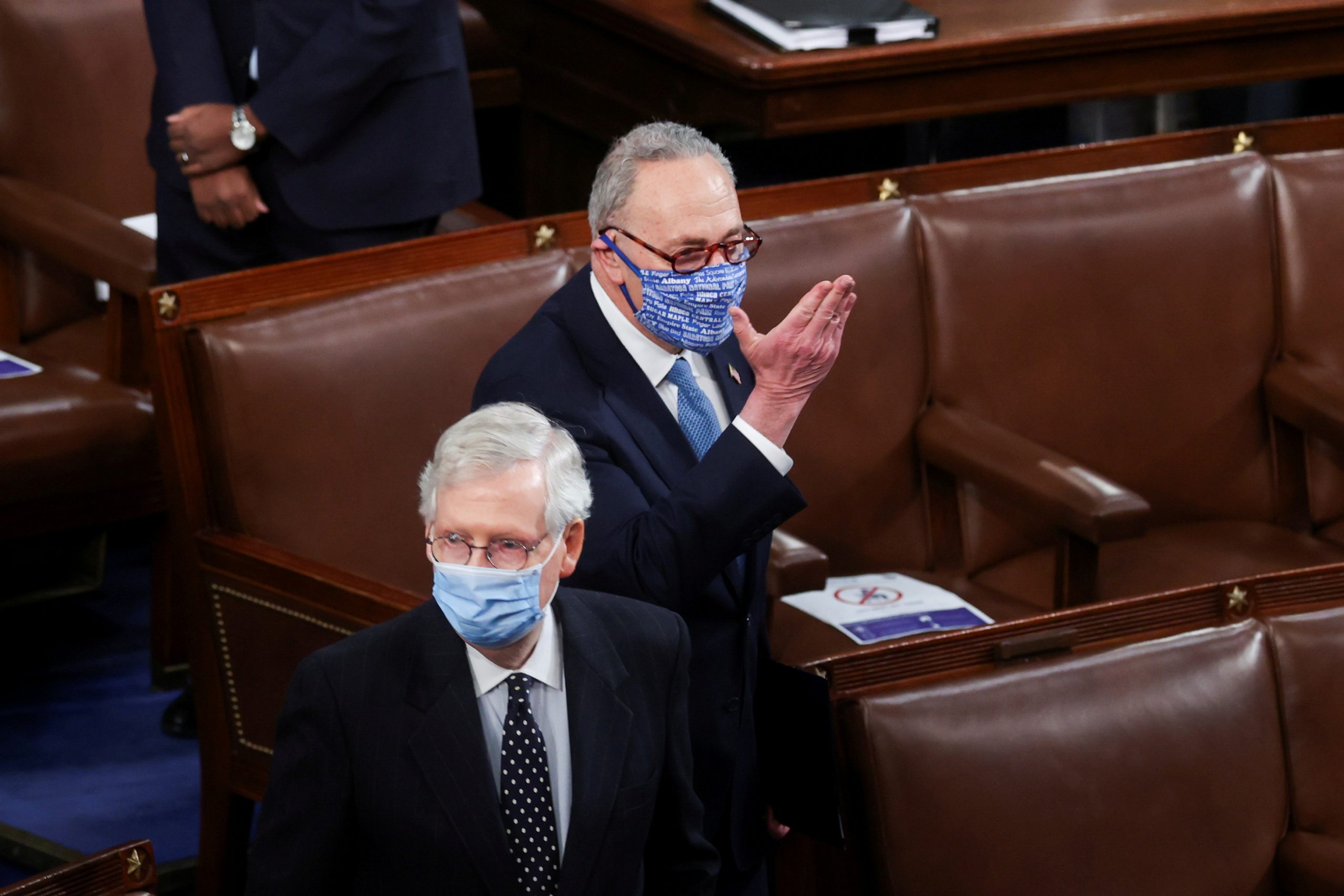A standoff between new U.S. Senate Majority Leader Chuck Schumer, a Democrat, and the man he replaced, Republican Mitch McConnell, over a core rule of Senate operations has kept the two from reaching a deal on how to manage the 50-50 chamber.
Schumer is resisting McConnell’s demand for a promise to protect the long-standing Senate rule requiring a supermajority of 60 votes to advance most legislation, known as the legislative filibuster.
Their argument is holding up the basic organization and work of the Senate as it begins the new year with 50 senators from each party. Committees have not reorganized to accommodate new members.
“Things are on hold. I’ve got a lot of things I want to do,” the Senate’s No. 2 Democrat, Dick Durbin, told reporters on Thursday.
Democrats have the majority in the Senate because the new vice president, Democrat Kamala Harris, can vote in case of a tie.
But she cannot be expected to be there every day to decide every dispute. So Schumer and McConnell started talking earlier this week about a possible power-sharing deal governing daily operations, similar to a deal struck two decades ago when the Senate also had a 50-50 split.
McConnell is pushing for a commitment from Schumer to protect the filibuster, which some progressive Democrats have suggested should be ditched so that Democrats can pass their agenda without Republican support.
“I cannot imagine the Democratic leader would rather hold up the power-sharing agreement than simply reaffirm that his side won’t be breaking this standing rule of the Senate,” McConnell said Thursday.
Democrats could unilaterally change the rule to require only a simple majority for legislation to advance, if all 50 Democrats plus Harris agreed to do so, a gambit sometimes called the “nuclear option.” In recent years, the rules have been changed to allow most judicial and Cabinet nominations to advance with a simple majority, but not legislation.
Schumer is resisting McConnell’s demand, telling reporters on Thursday he did not want any “extraneous” provisions in the power-sharing deal.
Moderate Democrats like Senator Joe Manchin favor keeping the legislative filibuster. But even Manchin supports Schumer sticking to his guns and not making any promises to McConnell, keeping the threat of going “nuclear” on legislation in reserve if Republicans do not work cooperatively.
“Chuck has the right to do what he’s doing,” Manchin told reporters this week. “He has the right to use that to leverage in whatever he wants to do.”
(Reporting by Susan Cornwell; Editing by Scott Malone and Peter Cooney)

























 Continue with Google
Continue with Google